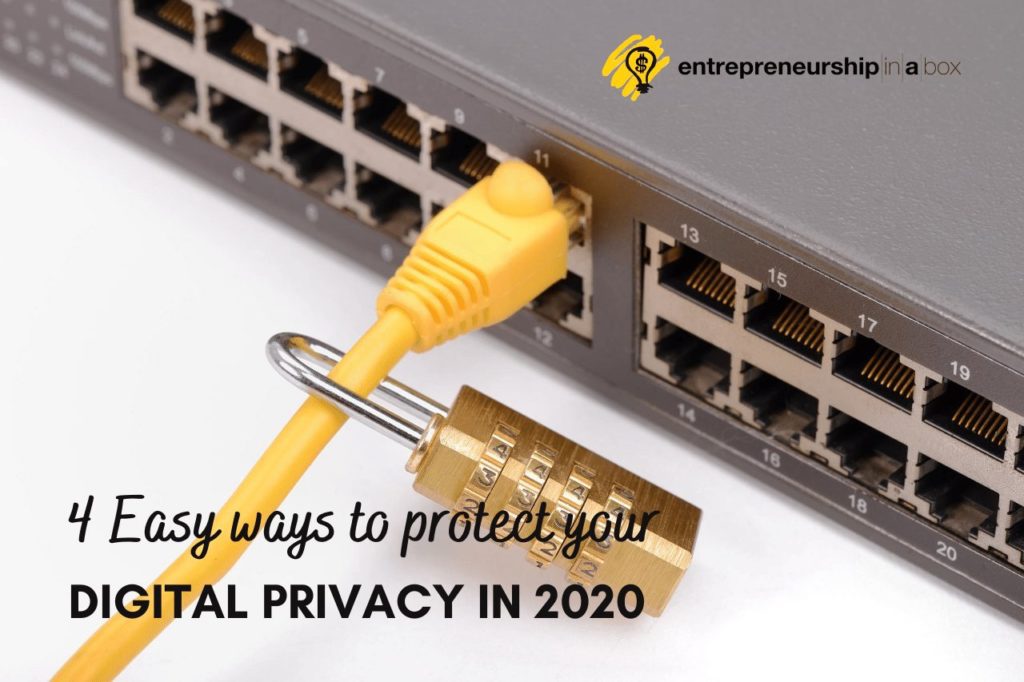The digital era that we live in comes with numerous advantages and disadvantages.
On the one hand, due to digital solutions, communication is faster than ever. People can talk to their family members living across oceans anytime they want. There are online stores that allow you to shop in the grocery store without having to go there. Thanks to digitalization, people can work remotely and earn money from the comfort of their houses.
On the other hand, there is the darker side of the internet and the digital world.
Online snoopers, massive data hackings, fake accounts, unsecured passwords – the list of potential digital dangers can go on almost forever.
Most people don’t pay much attention to the downsides of technological solutions. They tend to think that all the privacy-related issues somehow don’t concern them, while they very much do. Moreover, the ones aware of the threats feel like they can’t do anything about their online privacy. That phenomenon refers to both individuals and companies.
Fortunately, there are some easy ways of keeping personal data secure. One of the fastest and most effective ways of doing so is using external software that monitors and protects it from potential online threats such as snoopers.
If you are a business owner looking for a way to keep hackers and other intruders away, you can head to www.bulletproof.co.uk to find the perfect solution for keeping your company’s data safe.
But there are also some quick and easy ways to protect your online privacy, and here, we present you with the best four solutions of 2020.
Use a VPN
Those three letters can turn out to be a lifesaver to anyone trying to protect their online privacy.
VPN stands for Virtual Private Network. It is a tool that allows your device to connect to the internet through a different server than your own. The software changes your IP address to another one that is somewhere else in the world.
Using a VPN comes with various advantages. You will gain anonymity, get access to region-restricted websites, and prevent any potential online hacking.
There are numerous VPNs available on the market. Each of them will keep your device secure in a slightly different way. Additionally, they differ in the fee plans.
The most common VPNs to use are Express VPN, NordVPN, and Surfshark.
Privacy Settings
Make sure all your devices are using the best privacy settings, such as private browsing.
This tip also refers to the apps you are downloading from the internet and the websites you are entering. Most of them will ask you to share your geolocation, allow online cookies, and let the external system manage your passwords.
Allowing cookies and sharing your location may end up in you bombarded with personalized advertisements later on.
When it comes to passwords, the strong ones include random letters and numbers. Due to their complexity, they can be easy to forget.
However, instead of letting the application’s system remember all your passwords and manage them, it is best to write them down or create a digital document with the information. Sometimes, five additional seconds sacrificed for entering the password manually instead of automatically can save you a lot of trouble and worry.
Encryption
How would you feel if someone could read your online conversations? Probably wrong. To protect your privacy, use encryption.
Encrypted cloud storage and messaging are only examples of how you could use encryption to secure your privacy.
Be aware that this solution requires you to use external apps, such as Signal for the messages, or SpiderOak for the cloud. Both of them will encrypt your data locally, which means only you will be able to unlock and access it.
Get Rid off Accounts You Don’t Use
Chances are there is an app that you liked a couple of years ago but do not use anymore.
Consider deleting the online accounts you don’t need to protect yourself better digitally.
Keeping old accounts active creates more space for online threats. There is no reason for you to increase the probability of being snooped and getting hacked.
Conclusion
In 2020, protecting online privacy should be of the utmost importance.
Online snoopers can get access to personal data almost anytime, anywhere.
Being mindful of the information you store on your phone, the websites you visit, the accounts you hold, and the passwords that you use is the best way to protect yourself from getting hacked.
On top of all the actions, you can take to keep a low profile, be responsible, and take good care of your online reputation. If you say there is nothing you want to hide online, make the statement true.





